The Best Prog Rock Guitarists Of All Time Ranked
Critics of the genre often limit its scope to a stereotype of long solos, overlong albums, fantasy lyrics, grandiose stage sets and costumes, and an obsessive dedication to technical skill. While progressive rock is often cited for its merging of high culture and low culture, few artists incorporated literal classical themes in their work to any great degree, and only a handful of groups purposely emulated or referenced classical music. Writer Emily Robinson says that the narrowed definition of “progressive rock” was a measure against the term’s loose application in the late 1960s, when it was “applied to everyone from Bob Dylan to the Rolling Stones”. Debate over the genre’s criterion continued to the 2010s, particularly on Internet forums dedicated to prog. According to musicologists Paul Hegarty and Martin Halliwell, Bill Martin and Edward Macan authored major books about progressive rock while “effectively accepting the characterization of progressive rock offered by its critics. … they each do so largely unconsciously.” Academic John S. Cotner contests Macan’s view that progressive rock cannot exist without the continuous and overt assimilation of classical music into rock. Author Kevin Holm-Hudson agrees that “progressive rock is a style far more diverse than what is heard from its mainstream groups and what is implied by unsympathetic critics.” Here are all of the best Prog Rock Guitarists of all time ranked.
See more: The Best Rock Singers Of All Time Ranked
See more: The Best Metal Singers Of All Time Ranked
20. Mike Oldfield

“Mike Oldfield is above all a composer, and he uses the big guitar moments to advance the drama of a piece. Witness the climactic “storm” section of Hergest Ridge, which has a reported 90 guitar parts built into it. But he can be equally effective with a solo guitar”
19. Adrian Belew

“Adrian Belew is an American musician, songwriter and record producer. A multi-instrumentalist primarily known as a guitarist and singer, Belew is noted for his unusual, impressionistic approach to guitar playing.”
18. John McLaughlin

“Miles Davis was somewhat infamous for not giving the musicians he worked and collaborated with a lot of credit for their contributions. So, the fact that a track on Davis’ landmark fusion LP, Bitches Brew, is simply named “John McLaughlin,” speaks volumes to how highly regarded McLaughlin’s playing was in both jazz and rock circles. Once on his own, McLaughlin continued innovating with the groundbreaking Mahavishnu Orchestra, who played a huge role in the jazz fusion movement.”
17. Steven Wilson

“The contemporary progressive icon knows how to keep his fans guessing. His delayed electronic prog pop album The Future Bites finally landed in January 2021, and represented probably who is starkest departure from the dark, heavy progressive sound that stalked his early material. Within the same year, though, has come the surprise announcement of a new Porcupine Tree record – Closure/Continuation – the band’s first in nearly 13 years.”
16. Mikael Akerfeldt
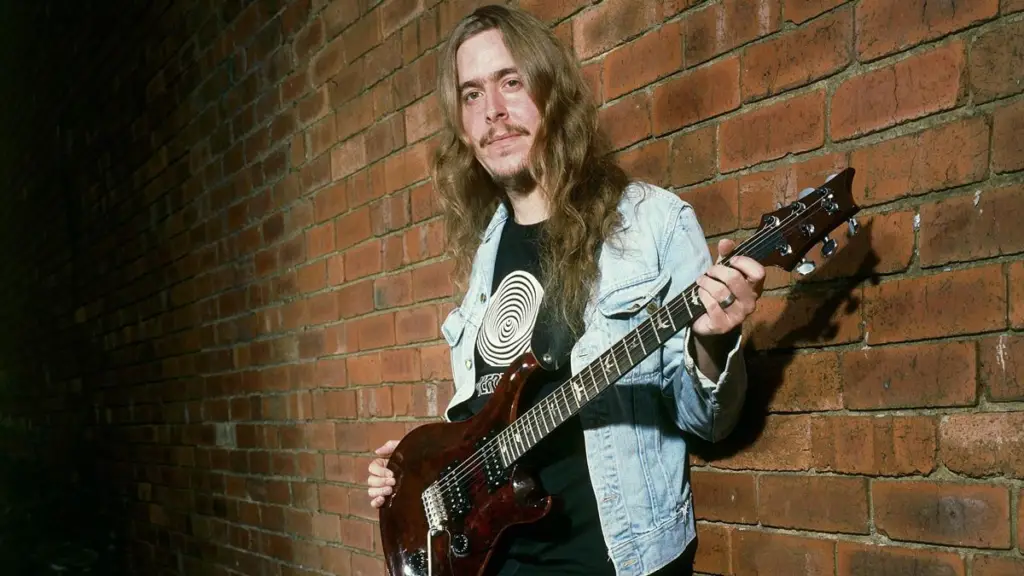
“The aunthenticity of Mikael is one of the facts that make Opeth a whole trademark inside music itself. A very mature and discipline human is what I see here. I hope this example of vision and talent keep always putting rock music on highest levels every generation.”
15. Bruce Soord

“Bruce Soord is a British songwriter, musician, producer, mixer and founder of The Pineapple Thief. He was born 26 September 1972 in Arnstein, Bavaria (Bayern) in Germany before moving to England. He currently resides in Yeovil, Somerset, United Kingdom.”
14. Frank Zappa
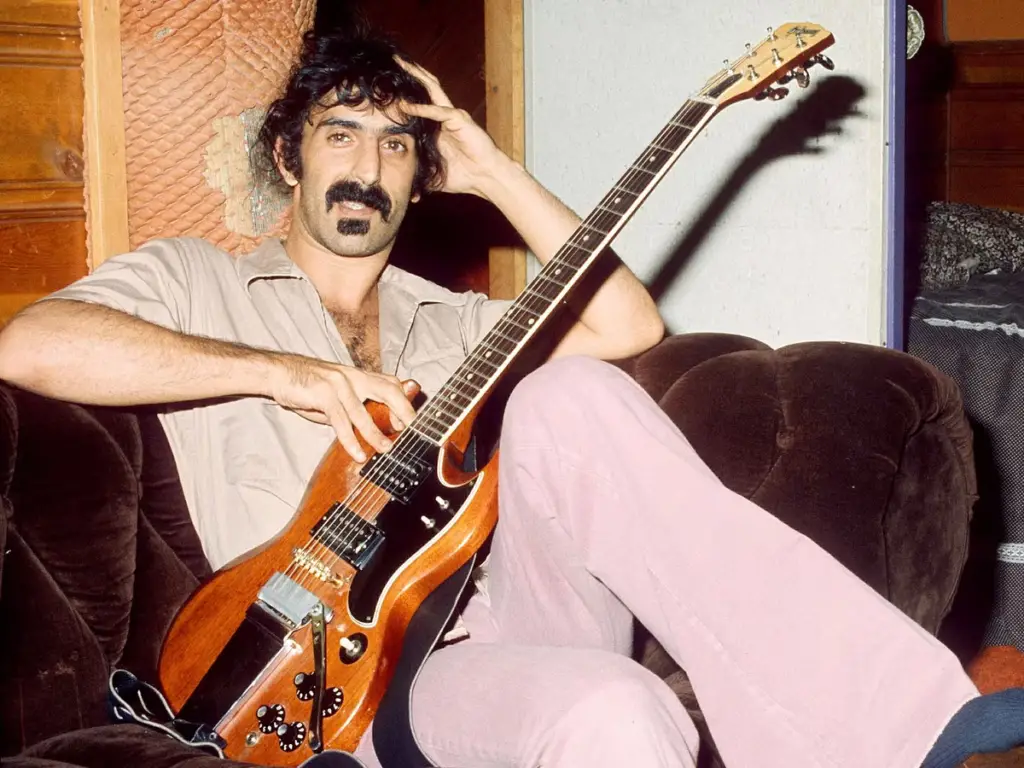
“No list of progressive rock guitarists, or guitarists as a whole, is complete without Frank Zappa. A true musician who was never afraid (and often all too eager to) offend, or challenge any convention, he constantly flouted the boundaries between genres. On a dime, he could switch from absurd, funk-laden pop, to devoted recreations of the Fifties R&B he so loved, to dizzyingly complicated, classical-influenced passages. It’s hard to find a guitarist who cast a wider musical net.”
13. Martin Barre
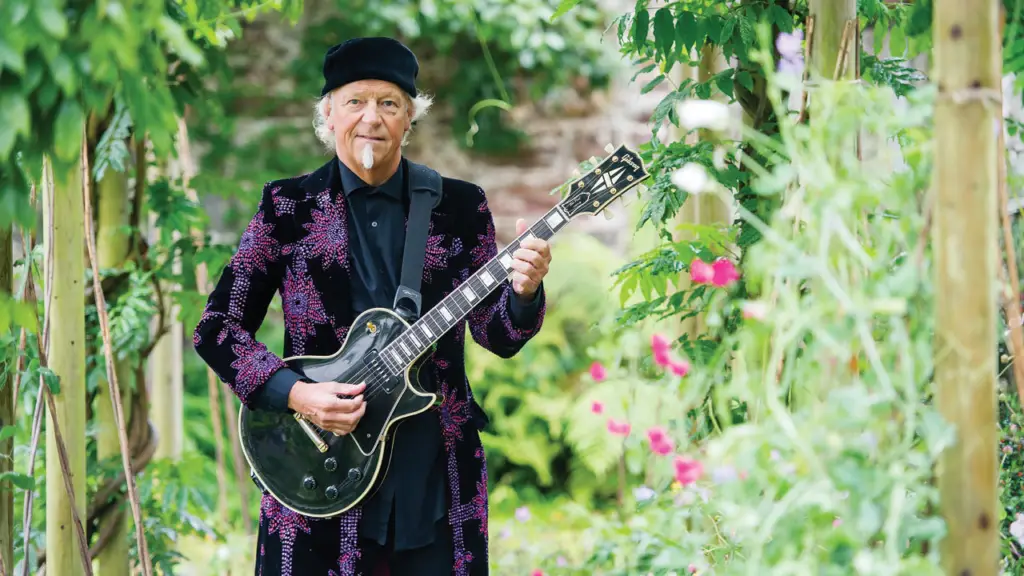
“Ian Anderson may be the face of Jethro Tull, but the band’s Celtic-inspired folk rock gets most of its energy from Martin Barre’s aggressive six-string work. On songs such as “Bungle in the Jungle” and “Aqualung,” Barre showed a sense of economy and melody that sometimes eluded his prog-rock peers. His solo in “Aqualung” is often cited as one of rock guitar’s greatest moments.”
12. Jan Akkerman

“Had he done nothing more than serve as the driving force on the 1973 hit “Hocus Pocus,” Jan Akkerman’s place in progressive guitar history would be assured. Following his departure from Focus in the mid ’70s, the Dutch guitarist went on to release several acclaimed solo albums. Readers of Britain’s Melody Maker magazine voted him “Best Guitarist in the World” in 1973.”
11. Andy Powell
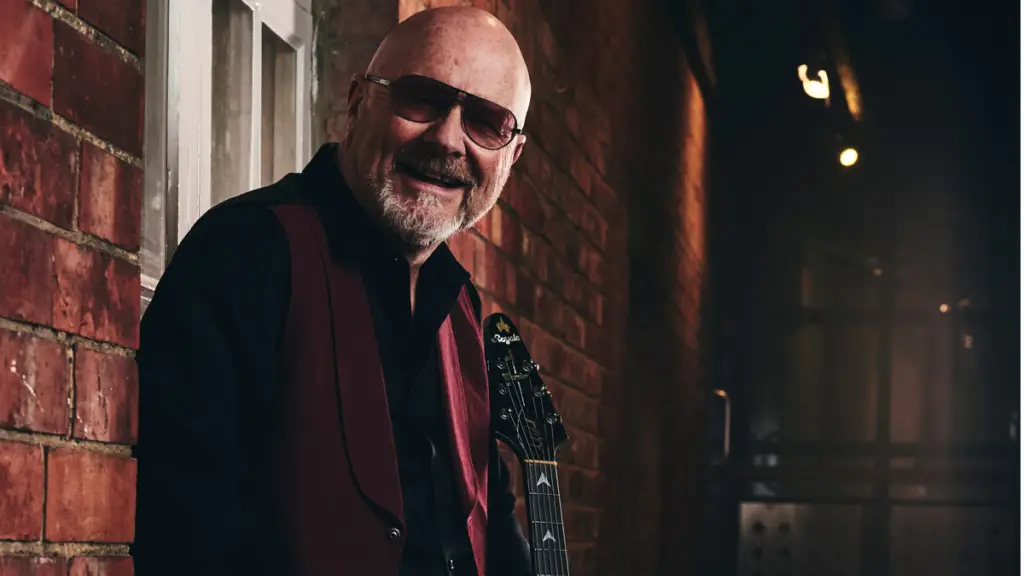
“Underrated and way ahead of his time in terms of tone and technicality. I am fortunate to see Ash play annually, easily an influence on me and should be up there as a house hold name with Jimmy Page, Iommi, Ritchie Blackmore, Jeff Beck.”
10. Peter Banks

“Yes’ founding guitarist Peter Banks tends to get the least notice of the band’s three axemen, but he helped invent the rock-orchestral sound that Howe and Trevor Rabin built on, and cut some tasty solos in the band’s days. He really blossomed in his next band Flash – one of prog’s first power trios – especially on tracks like the 10-minute “Lifetime,” which lives up to the group’s name.”
9. Justin Hayward
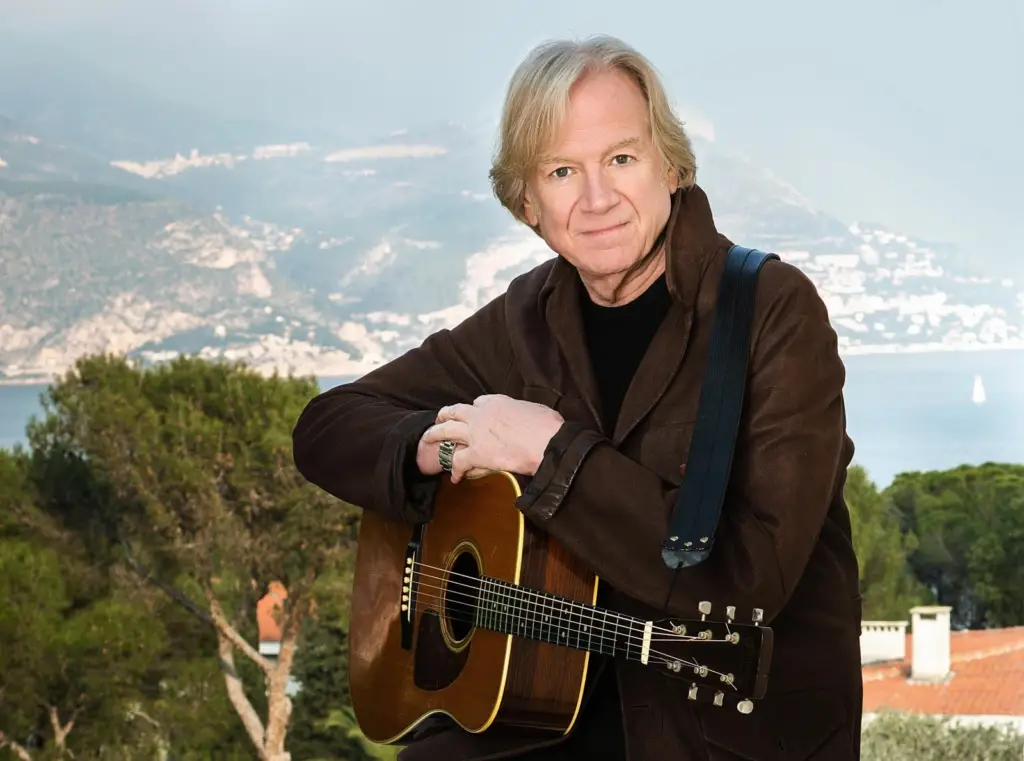
“Though he was known as The Moody Blues’ great balladeer, there are times when Justin Hayward preferred to be just a player in a rock’n’roll band. Having a rock-solid guitarist did the band a lot of good, and since the Moodies were never into long solos, Hayward was adept at concise melodic statements in his solos. “The Story in Your Eyes” has a memorably gritty one, and it’s still one of their prettiest tunes.”
8. Greg Lake
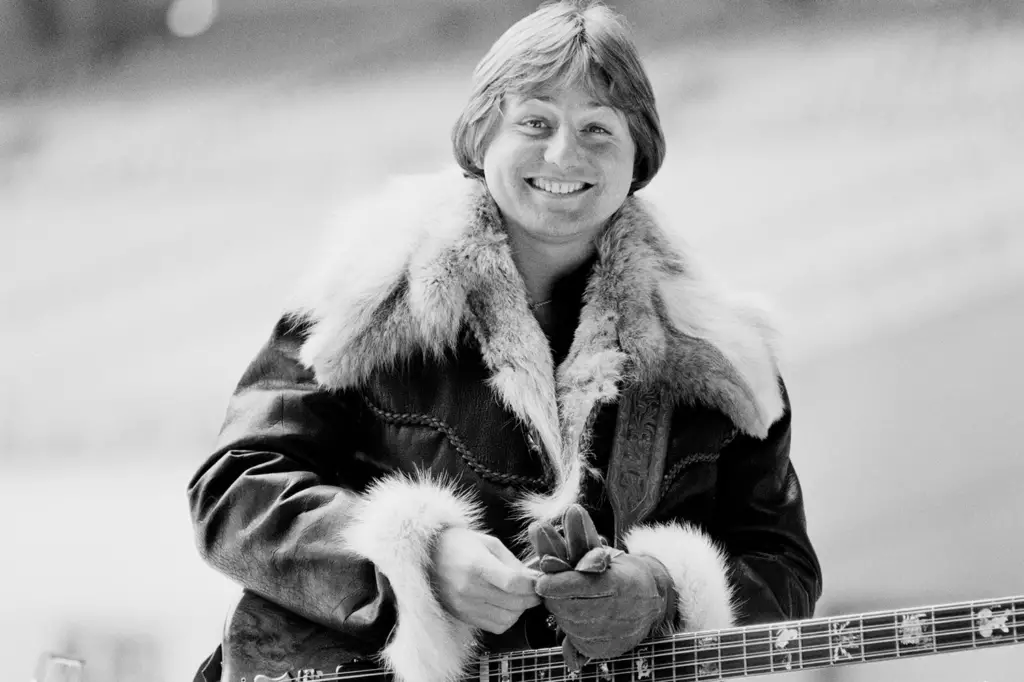
“Though he’s better known for his songwriting and bass skills, Greg Lake used his superb fingerpicking talents to provide ELP with some of its best moments. Acoustic pieces such as “From the Beginning” and “Still …You Turn Me On” have become standards in the prog pantheon. The lesser-known piece “Daddy,” from ELP’s overlooked 1994 album, In the Hot Seat, is nearly as good.”
7. John Petrucci
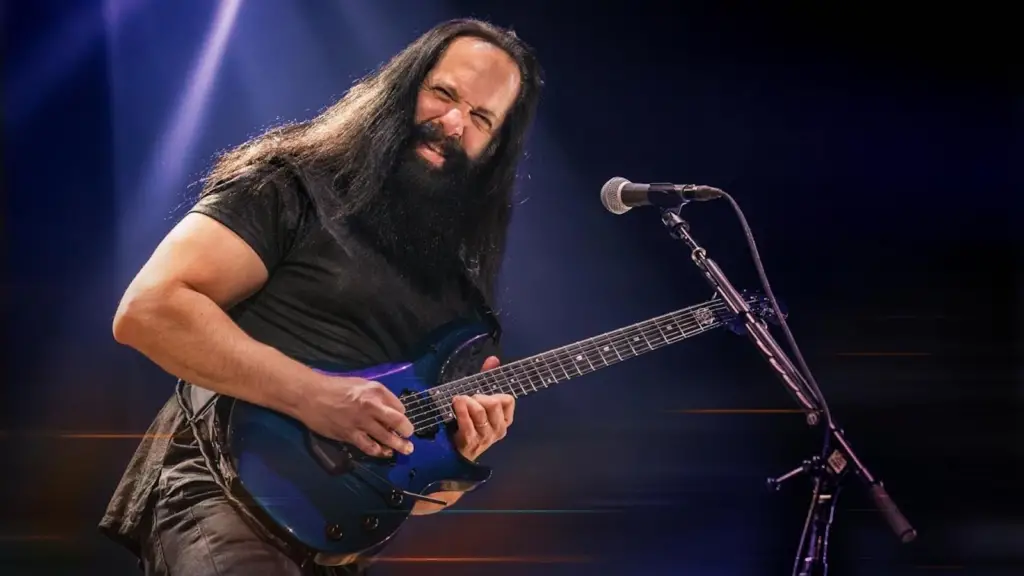
“Dream Theater released their 15th studio album, A View from the Top of the World, in 2021. Petrucci has said some of the material was inspired by the process of revisiting Images And Words (1992) and Metropolis Pt2: Scenes From A Memory (1999) for anniversary tours, but far from the snake eating its own tail, he continues to push himself as a player, experimenting with eight-strings and composing 20-minute epic, Summersault. “
6. Alex Lifeson

“Despite the sad reasons behind the decision, we’re pleased to see Alex Lifeson enjoying the freedom from Rush’s mega tour cycle.The guitarist has spent much of 2021 indulging experiments and new collaborations. Whether it’s releasing instrumentals, collaborating with Tom Morello and Kirk Hammett or his Envy Of None side project with Andy Curran, Lifeson is keeping busy.”
5. Steve Hackett
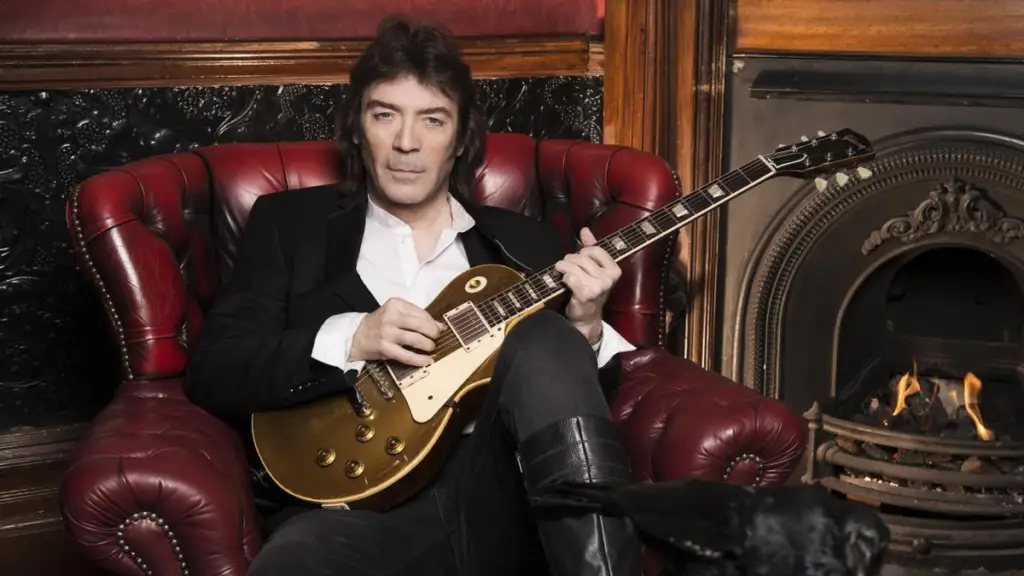
“It’s unfortunate that when most people think of Genesis, they immediately picture either Peter Gabriel or Phil Collins. Though entirely worthy of their immense success, Gabriel and Collins have overshadowed the contributions of Genesis’ early guitarist, Steve Hackett, in the public eye. Hackett’s early explorations of two-handed tapping and sweep picking were far ahead of their time, and influenced Eddie Van Halen and Brian May, among countless others.”
4. Andrew Latimer

“Andrew Latimer is an English musician and composer. He is a founding member of the progressive rock band Camel and the only member who has been with them since their formation in 1971. Best known as a guitarist and singer, Latimer is a flautist and keyboardist as well.”
3. David Gilmour

“David Jon Gilmour is an English singer, songwriter, composer, multi-instrumentalist, and record producer. He joined the progressive rock band Pink Floyd as guitarist and co-lead vocalist in 1968. In addition to bringing an overt blues influence to the genre, David Gilmour is one of progressive rock’s most melodic lead players.”
2. Steve Howe
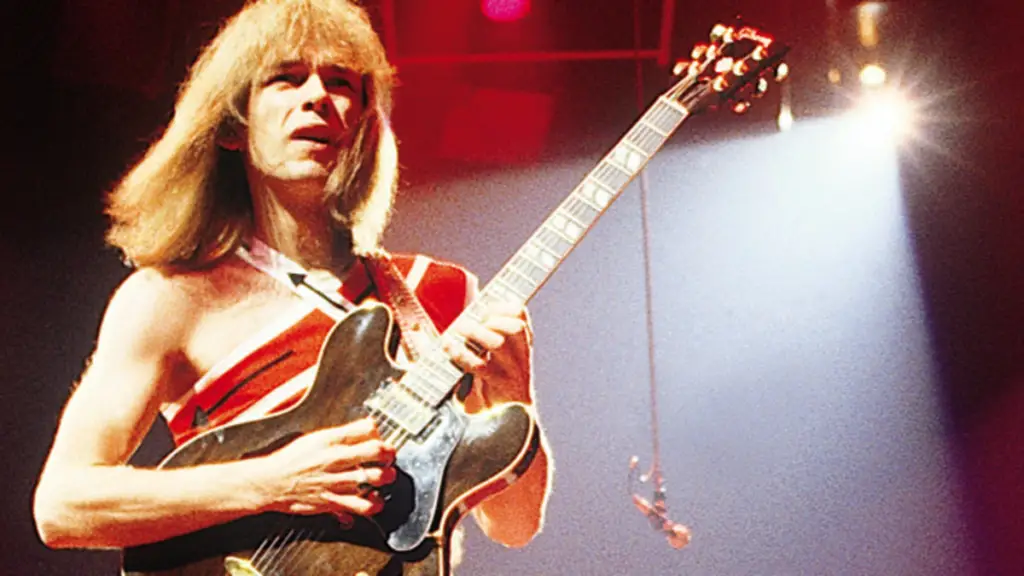
“Another veteran prog warrior who, ever true to his progressive instincts, refuses to stop pushing. Yes returned in 2021 with The Quest – their first album in seven years – and Howe is still experimenting, weaving in new instruments and more of his classical influences to the band’s writing process.”
1. Robert Fripp

“Robert Fripp may be the name most associated with King Crimson, but the influence of Adrian Belew on the band’s post-1981 material cannot be discounted. As the band’s frontman and second guitarist, it was Belew who was responsible for bringing Fripp’s ideas to light, which he did with aplomb. Belew has brought a fearless attitude to each and every one of his many projects, exploring and creating otherworldly sounds most would never dream of crafting on a six-string.”

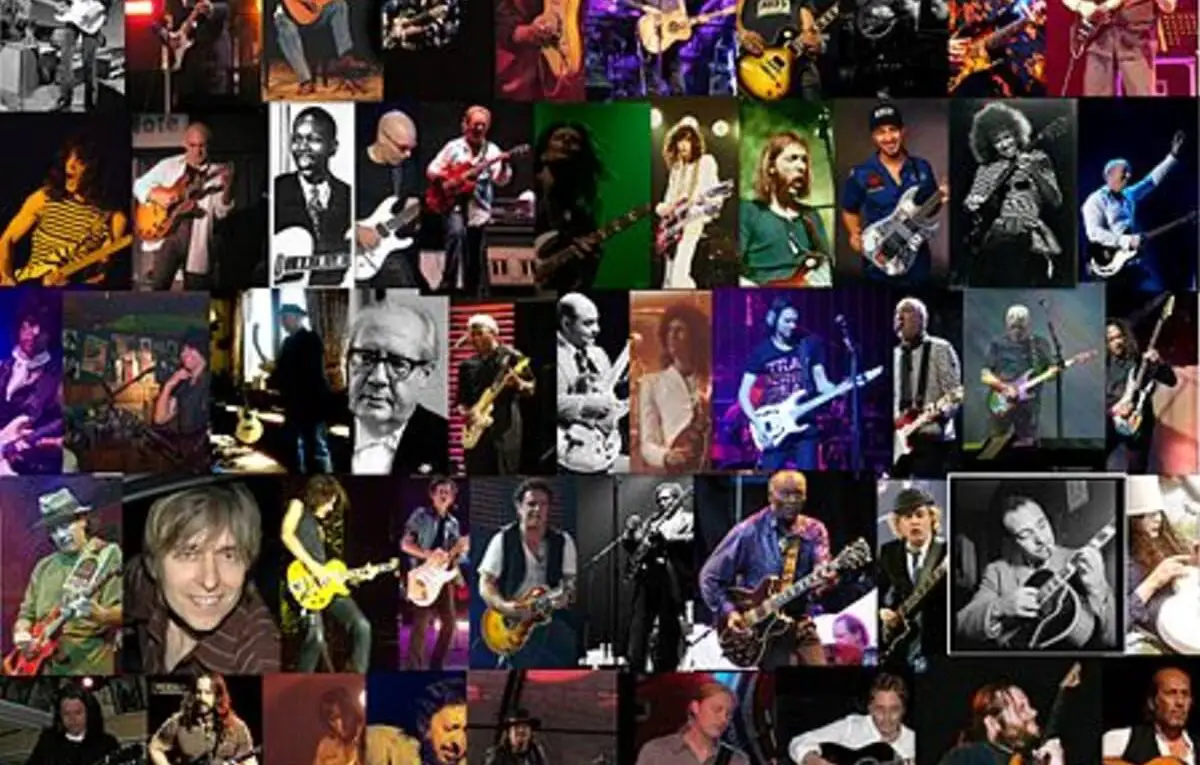
This internet site is my breathing in, really superb style and perfect content.